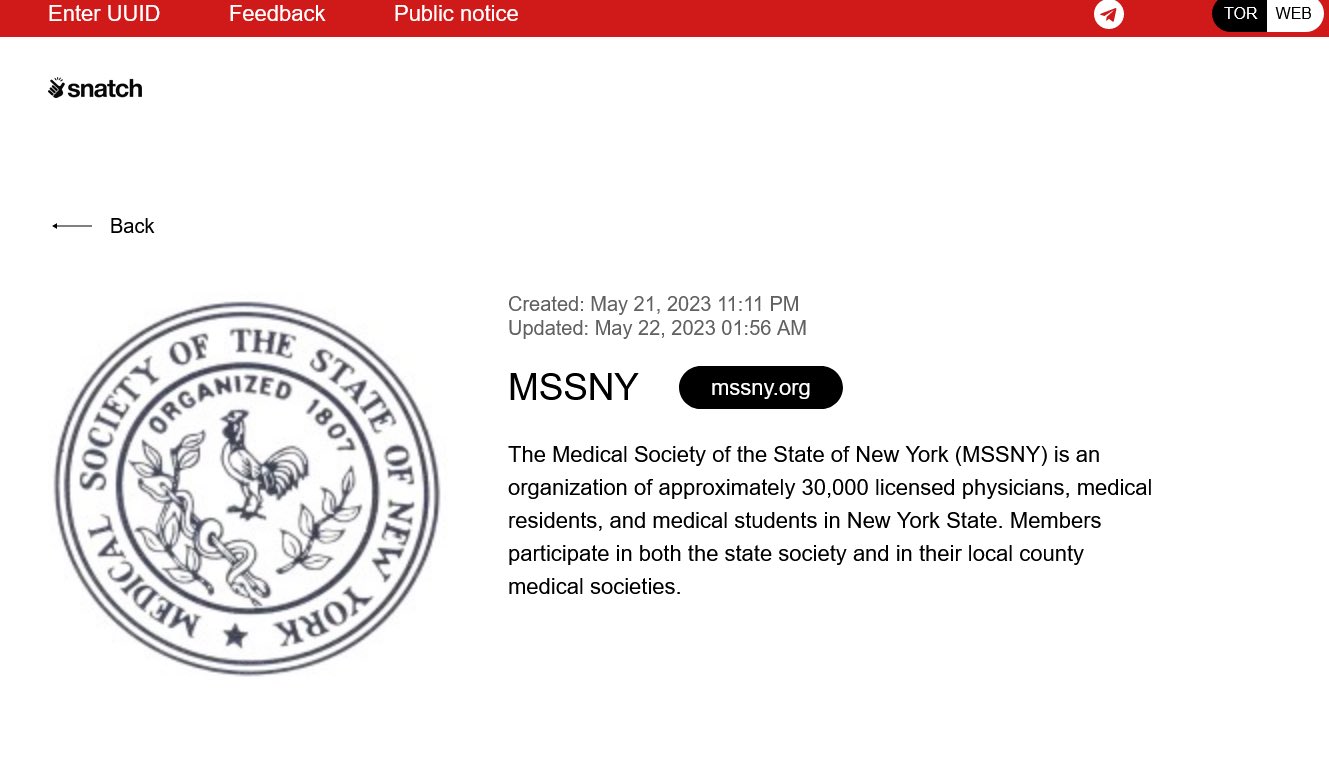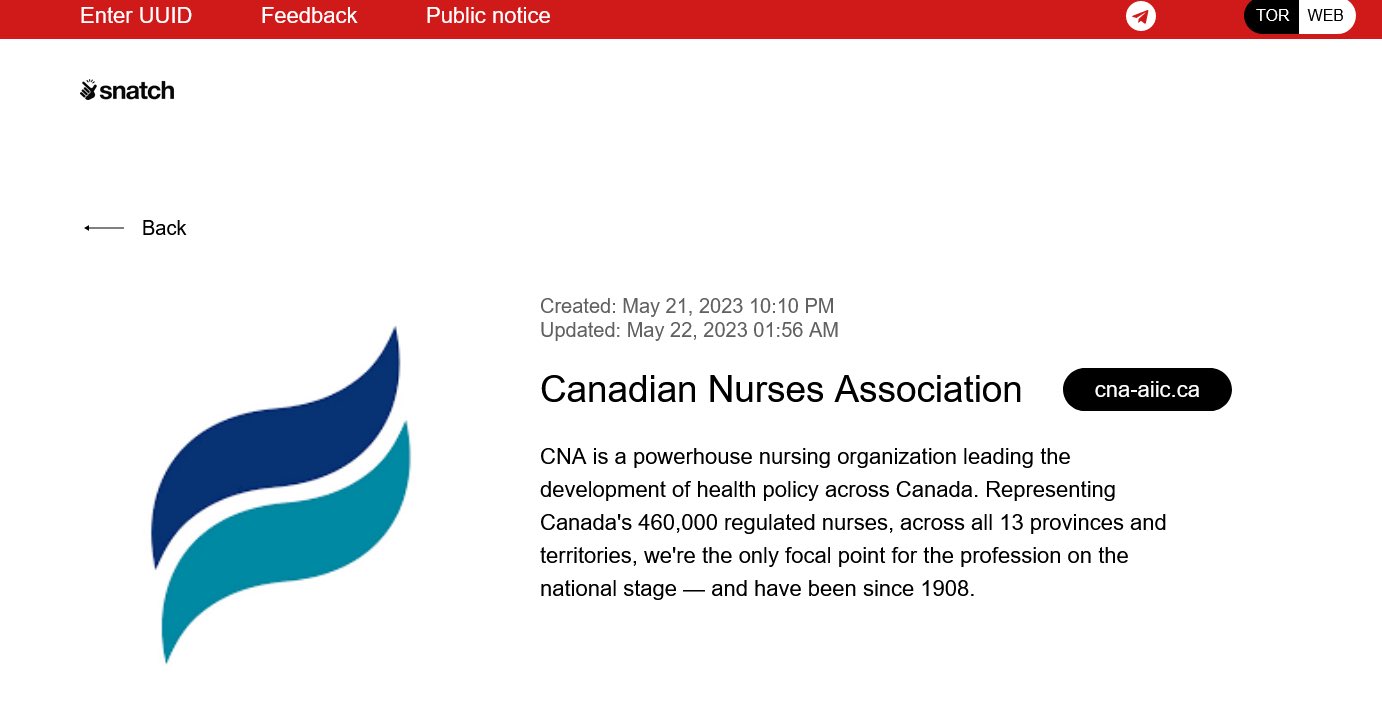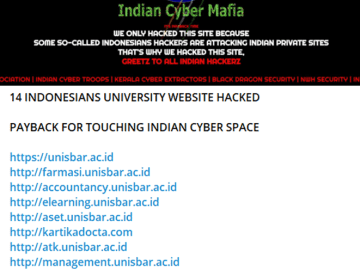Snatch ransomware has attacked medical societies in the US and Canada, claimed the threat actor.
The Medical Society of the State of New York and the Canadian Nurses Association have reportedly fallen victim to a cyber attack by the notorious ransomware group, according to a post on the Snatch leak site.
While the news about Snatch ransomware attacks medical societies, including the Medical Society of the State of New York and the Canadian Nurses Association, has triggered reactions online, both organizations are yet to officially confirm the legitimacy of these claims.


The Cyber Express team has reached out to the Medical Society of the State of New York and the Canadian Nurses Association to garner information regarding Snatch ransomware attacks on medical societies in the US and Canada.

However, no official response or statement has been received from either company, leaving the cyber attack still unverified.
Snatch ransomware attacks medical societies: Rise of targeted attacks on medical facilities
Along with the news about Snatch ransomware attacks medical societies in the USA and Canada, healthcare providers regrettably found themselves as the primary targets for ransomware attacks during the third quarter of 2022.
At that time, approximately one in every 42 organizations in the industry fell victim to such an attack, as per PhoenixNAP reports.
According to Check Point Research (CPR), healthcare organizations experienced 1,426 attacks per week in 2022, a 60% increase over the previous year.
“In many cases, cyberattacks against healthcare organizations carried a high cost for organizations, with the cost of a data breach growing by 42% over the past two years,” said the CPR report.
The healthcare industry remains an enticing prey for cybercriminals, constantly falling victim to their malicious acts. Statistics from the report revealed that healthcare organizations encountered an average of 1,426 cyberattacks every week throughout 2022.
The repercussions of these cyberattacks, like Snatch ransomware attacks on medical societies in the US and Canada, have inflicted significant financial burdens on targeted organizations. Over the course of the past two years, the cost of data breaches surged by an alarming 42%.
According to the findings presented in the Cost of a Data Breach by IBM, healthcare organizations have been particularly hard hit, experiencing the highest data breach costs across all industries.
On average, a single data breach incident has amounted to a staggering $10.10 million in losses within the healthcare realm.
Snatch ransomware attacks medical societies The origin of the ransomware
The healthcare sector exhibited the highest inclination to comply with the hackers’ demands, with ransom payments being made in approximately 61% of the ransomware incidents in 2022.
This percentage surpassed any other industry’s willingness to meet these demands.
In this incident, the Snatch ransomware attacks medical societies — the Medical Society of the State of New York and the Canadian Nurses Association, the ransomware has been active since 2018, leveraging the Windows Safe Mode and privileged service.
Once injected into a system, the ransomware creates a Windows service that can start up even in Safe Mode, thanks to specific registry keys. This service uses the ransomware’s core files, causing the malware to launch every time the infected PC is booted.
As security companies continue to investigate the alleged Snatch Ransomware attacks on medical societies in the US and Canada, the incident serves as a stark reminder that cybersecurity should be a top priority for all organizations, especially those handling sensitive medical data.
The healthcare industry must remain vigilant, continuously adapt to evolving cyber threats, and take proactive measures to safeguard patient information and ensure the uninterrupted delivery of critical healthcare services.
While the industry waits for official confirmation from the affected organizations, the potential impact of the Snatch Ransomware attacks on medical societies attack looms, emphasizing the urgent need for enhanced cybersecurity practices in healthcare and beyond.
Media Disclaimer: This report is based on internal and external research obtained through various means. The information provided is for reference purposes only, and users bear full responsibility for their reliance on it. The Cyber Express assumes no liability for the accuracy or consequences of using this information.




